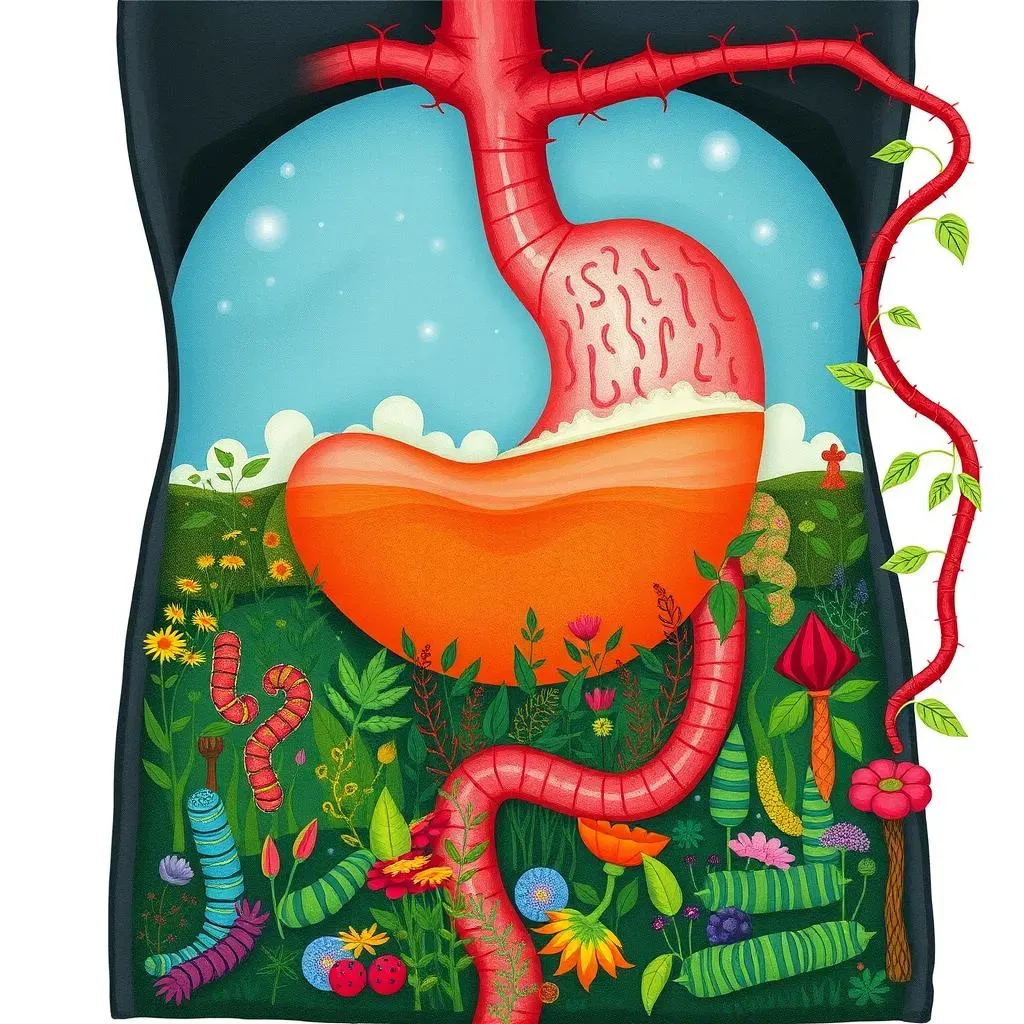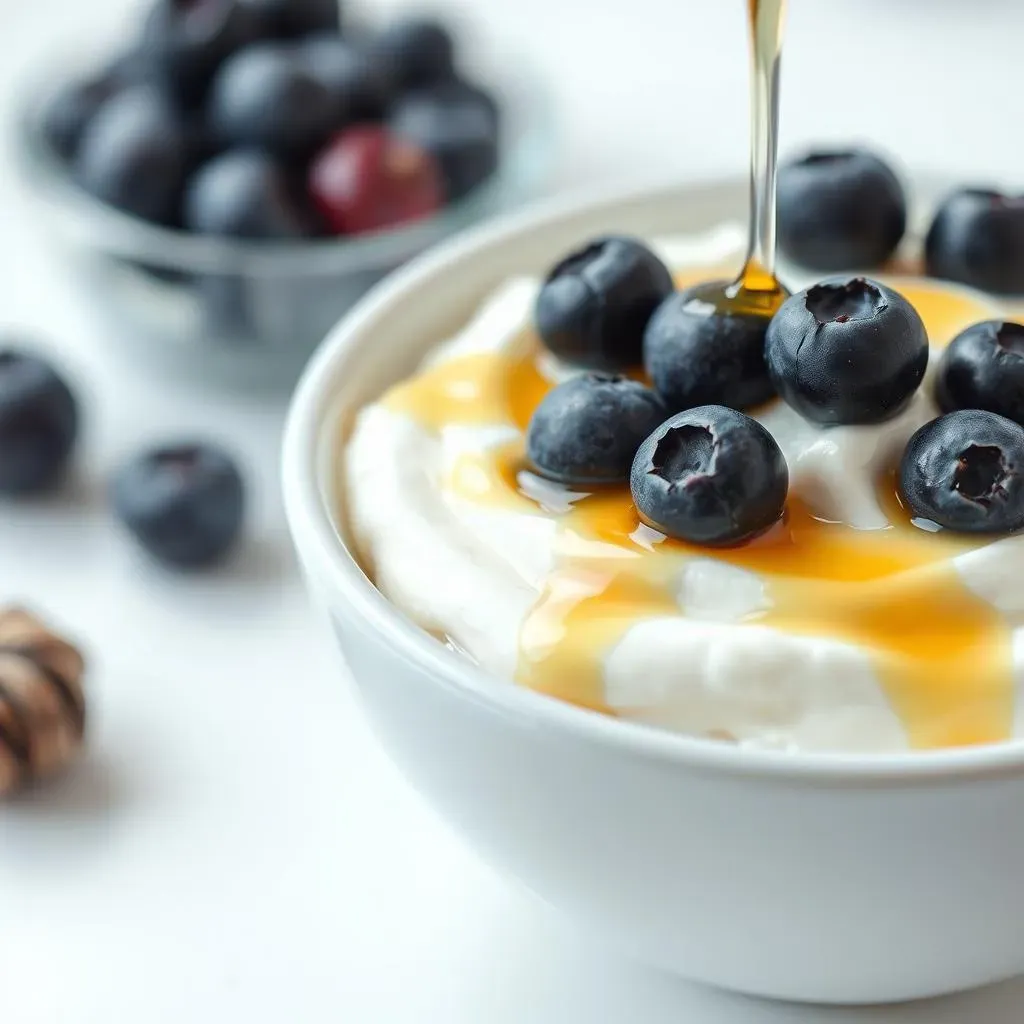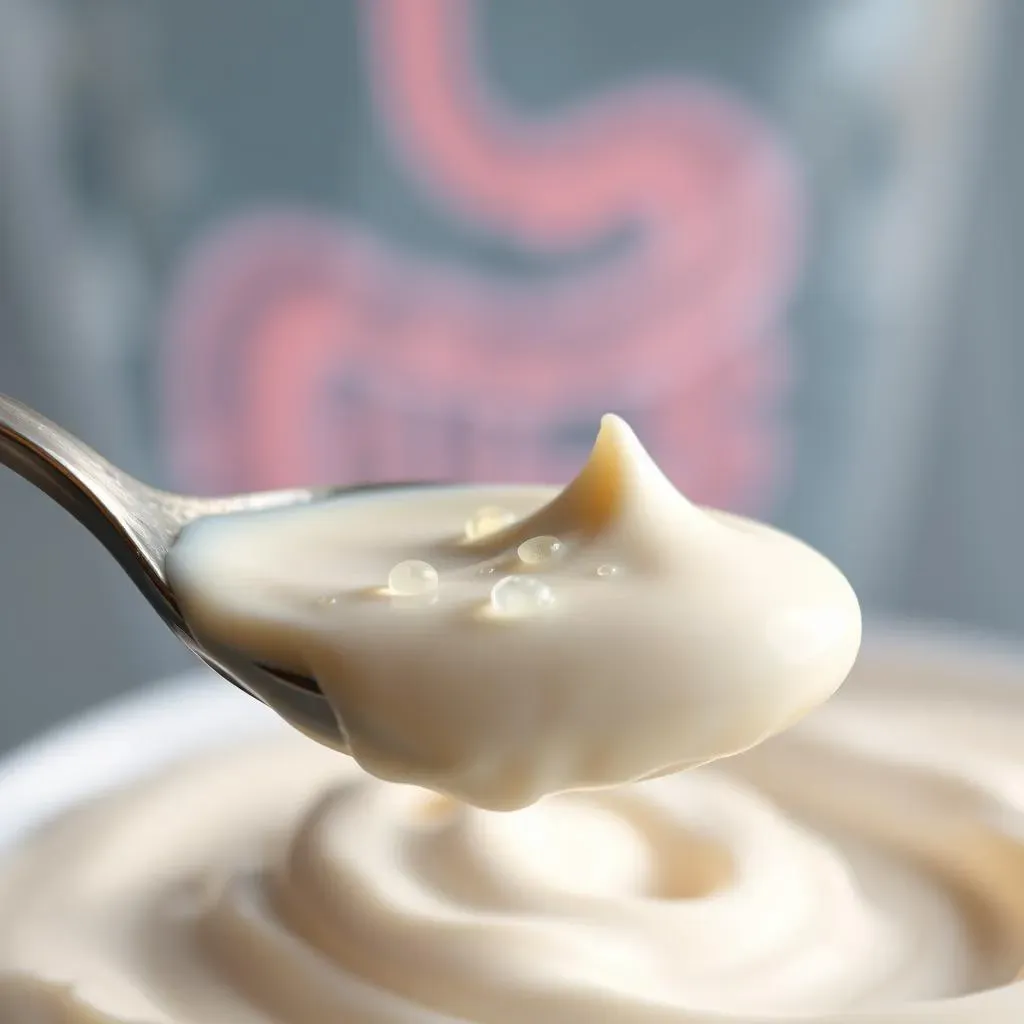Table of Contents
Acid reflux, that fiery sensation creeping up your chest, is a real drag. You're not alone if you're constantly searching for foods that won't trigger the burn. But what about yogurt? Is it a friend or foe when it comes to acid reflux? The answer, like most things related to gut health, is nuanced. We're diving deep into the world of yogurt, specifically exploring how low fat yogurt interacts with acid reflux. Some yogurts can actually soothe your irritated esophagus, while others might make things worse. This article will break down the science, separate fact from fiction, and guide you toward making the best yogurt choices for your gut. We'll explore the connection between gut health and acid reflux, and why low fat yogurt might just be the creamy, probiotic-packed answer you've been searching for. From understanding the role of probiotics to identifying the best types of low fat yogurt for acid reflux relief, we'll cover it all. Plus, we'll look at other lifestyle changes that can work in harmony with your yogurt habit to keep that heartburn at bay. So, grab a spoon and let's get started!
Understanding Acid Reflux: What's the Gut Connection?

Understanding Acid Reflux: What's the Gut Connection?
What Exactly is Acid Reflux?
let's break down acid reflux. Imagine your stomach is a little cauldron of acid, which it is, and it needs to stay there to digest food. Now, there's a gatekeeper called the lower esophageal sphincter (LES) that's supposed to keep that acid from splashing back up into your esophagus – that tube connecting your mouth to your stomach. When the LES gets lazy or weak, stomach acid sneaks past, causing that lovely burning sensation we know as heartburn. It's not just discomfort; chronic acid reflux can lead to more serious issues down the road, so understanding what's happening is the first step to tackling it.
Think of it like this: your stomach is a one-way street. Food goes down, gets digested, and moves on. Acid reflux is like a U-turn gone wrong, sending stomach contents back up the wrong way. And trust me, your esophagus is not built for that kind of traffic!
The Gut Microbiome's Role: Are Bacteria to Blame?
Now, here's where the gut connection comes in. Your gut is teeming with trillions of bacteria, both good and bad. This microbial ecosystem, or gut microbiome, plays a huge role in digestion, immunity, and even mental health. When this balance is disrupted – say, you have too many bad bacteria and not enough good ones – it can contribute to acid reflux. Some studies suggest that an imbalance can increase inflammation in the gut, which can then affect the LES and make it more likely to malfunction. So, yes, bacteria might be partly to blame for that burning sensation.
It's kind of like a garden. If the soil is healthy and balanced, the plants thrive. But if weeds take over, things start to go downhill. Your gut is the same way – a healthy balance of bacteria is key to keeping everything running smoothly.
Inflammation and the Esophagus: A Vicious Cycle
Inflammation is another key player in the acid reflux game. When stomach acid repeatedly irritates the lining of your esophagus, it causes inflammation. This inflammation can weaken the LES over time, making it even harder to keep acid down where it belongs. It's a vicious cycle – acid reflux causes inflammation, which weakens the LES, leading to more acid reflux. Breaking this cycle is crucial for long-term relief, and that's where things like diet, lifestyle changes, and, yes, even yogurt come into play.
Think of your esophagus as a delicate flower. Constant exposure to acid is like pouring battery acid on it – not good! Inflammation is the flower's way of saying, "Hey, I'm under attack!"
Factor | Impact on Acid Reflux |
|---|---|
Gut Microbiome Imbalance | Increased inflammation, potential LES dysfunction |
Chronic Inflammation | Weakened LES, worsened reflux symptoms |
Dietary Choices | Triggers or alleviates reflux depending on food |
Why Low Fat Yogurt Might Help: Probiotics and Your Esophagus

Why Low Fat Yogurt Might Help: Probiotics and Your Esophagus
so you're probably wondering, "Yogurt? Really? How can that help my acid reflux?" Well, it all boils down to probiotics. These are the friendly bacteria that live in your gut, and they can have a surprisingly positive impact on your esophagus. Yogurt, especially low fat yogurt with live and active cultures, is a fantastic source of these probiotics. Think of them as tiny superheroes working to restore balance in your gut. By introducing more good bacteria, you're essentially crowding out the bad guys that can contribute to inflammation and LES dysfunction. But remember, not all yogurts are created equal – the "low fat" part is crucial, and we'll get to why in a bit.
It's like repopulating a forest after a fire. You need to bring in the right kind of seeds (probiotics) to help the ecosystem recover and thrive.
Best Low Fat Yogurt Choices for Acid Reflux Relief

Best Low Fat Yogurt Choices for Acid Reflux Relief
Greek Yogurt: The Protein Powerhouse
so you're on board with the yogurt idea, but which one do you choose? Greek yogurt is a fantastic option, especially when you're battling acid reflux. It's strained to remove whey, which results in a thicker, creamier texture and a higher protein content. That extra protein is key because it can help strengthen the LES, making it more effective at keeping stomach acid where it belongs. Plus, Greek yogurt tends to be lower in carbohydrates and sodium compared to other types, which is another win for reflux sufferers. Just make sure you're grabbing the low fat or non-fat variety – remember, fat can be a trigger!
Think of Greek yogurt as the bodybuilder of the yogurt world – strong, lean, and ready to take on any challenge, including a weak LES.
Plain Yogurt: The Unsweetened Savior
Next up is plain, low fat yogurt. The "plain" part is super important here. Many flavored yogurts are loaded with added sugars and artificial sweeteners, which can actually worsen acid reflux symptoms. Sugar can feed the bad bacteria in your gut, leading to more inflammation, and some artificial sweeteners have been linked to increased acid production. Plain yogurt, on the other hand, gives you all the probiotic benefits without the added junk. You can always add your own healthy toppings like berries or a drizzle of honey for a touch of sweetness.
It's like choosing a blank canvas. Plain yogurt lets you control what goes in and avoid any potential triggers lurking in flavored varieties.
Yogurt Type | Fat Content | Sugar Content | Probiotic Benefit | Acid Reflux Suitability |
|---|---|---|---|---|
Greek Yogurt | Low to Non-Fat | Low | High | Excellent |
Plain Yogurt | Low to Non-Fat | Very Low | Moderate to High | Excellent |
Flavored Yogurt | Varies | High | Varies | Poor |
Beyond Yogurt: A Holistic Approach to Managing Acid Reflux

Beyond Yogurt: A Holistic Approach to Managing Acid Reflux
Dietary Changes: Avoiding Trigger Foods
so you're adding low fat yogurt to your diet, great! But remember, yogurt is just one piece of the puzzle. To truly manage acid reflux, you need to take a good hard look at your overall diet. Certain foods are notorious for triggering heartburn. We're talking about things like fried and fatty foods, chocolate, caffeine, alcohol, spicy dishes, and acidic fruits like citrus and tomatoes. These can all relax the LES or increase stomach acid production, leading to that unwanted reflux. Keeping a food diary can be incredibly helpful in identifying your personal trigger foods. Once you know what they are, you can start making smart swaps and adjustments to your meals.
Think of it as building a house. Yogurt is like adding a fresh coat of paint, but if the foundation is cracked (your diet), the problem will keep coming back. You need to fix the foundation first!
Lifestyle Adjustments: Small Changes, Big Impact
Beyond diet, there are several lifestyle adjustments that can make a significant difference in managing acid reflux. One of the biggest is portion control. Eating smaller, more frequent meals can prevent your stomach from becoming overly full, reducing the pressure on the LES. Also, avoid lying down immediately after eating – give your stomach at least a couple of hours to digest before hitting the hay. Elevating the head of your bed can also help keep stomach acid from creeping up into your esophagus while you sleep. And finally, if you're a smoker, quitting is one of the best things you can do for your overall health, including your digestive system. Smoking weakens the LES and increases acid production.
It's like fine-tuning an engine. Each small adjustment – portion size, sleep position, quitting smoking – contributes to smoother, more efficient performance.
Lifestyle Adjustment | Benefit for Acid Reflux |
|---|---|
Smaller, More Frequent Meals | Reduces pressure on the LES |
Avoiding Lying Down After Eating | Allows stomach to digest before sleeping |
Elevating Head of Bed | Prevents acid from flowing into esophagus |
Quitting Smoking | Strengthens LES, reduces acid production |
Finding Your Gut Harmony: Low Fat Yogurt and Beyond
Ultimately, managing acid reflux is a personal journey. While low fat yogurt can be a valuable tool in your arsenal, it's not a one-size-fits-all solution. Pay attention to how your body responds to different types of yogurt, and don't hesitate to experiment with flavors and brands to find what works best for you. Combine your yogurt consumption with mindful eating habits, stress management techniques, and, when necessary, guidance from a healthcare professional. With a little experimentation and a holistic approach, you can achieve gut harmony and bid farewell to that unwanted heartburn.
